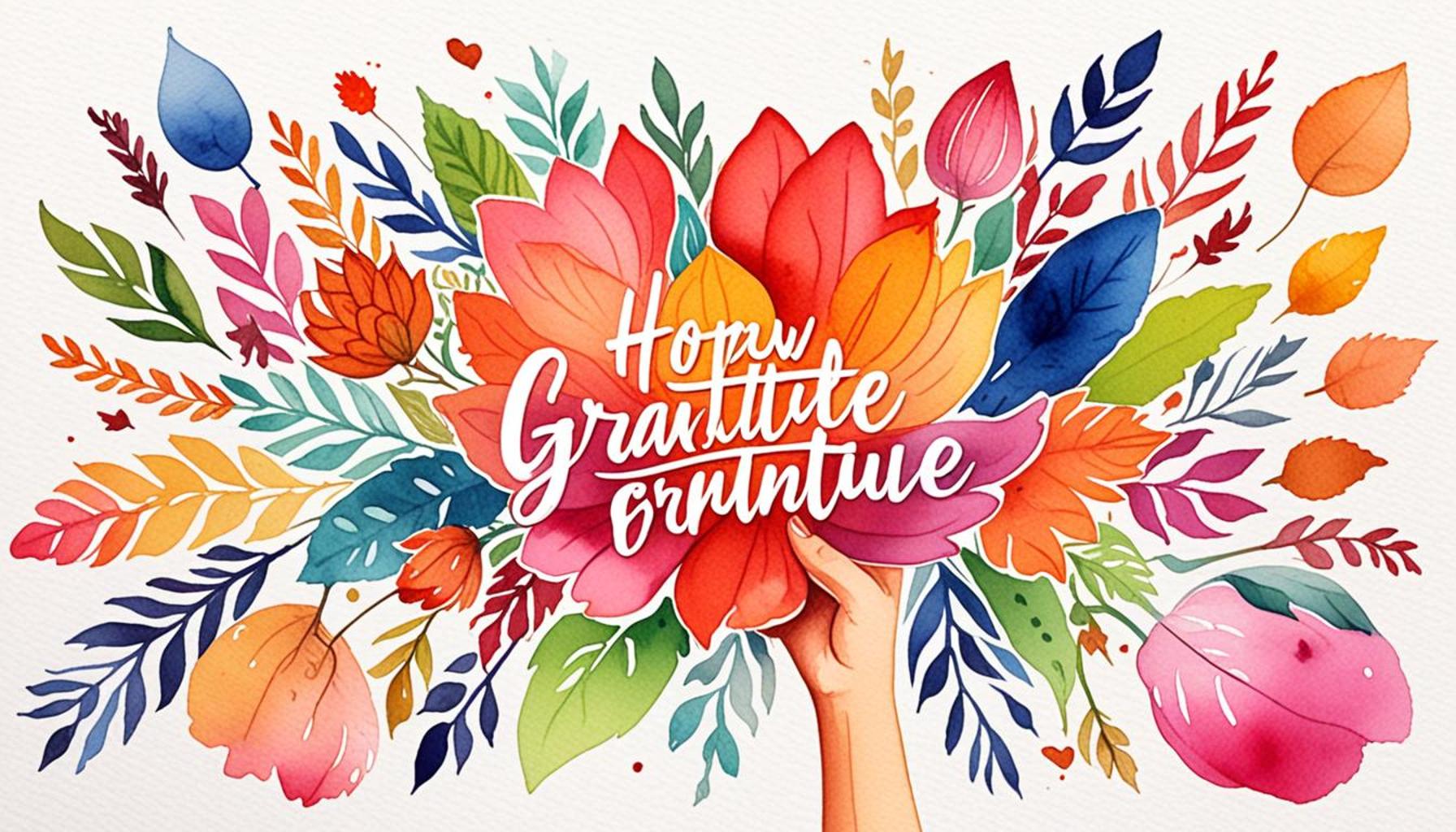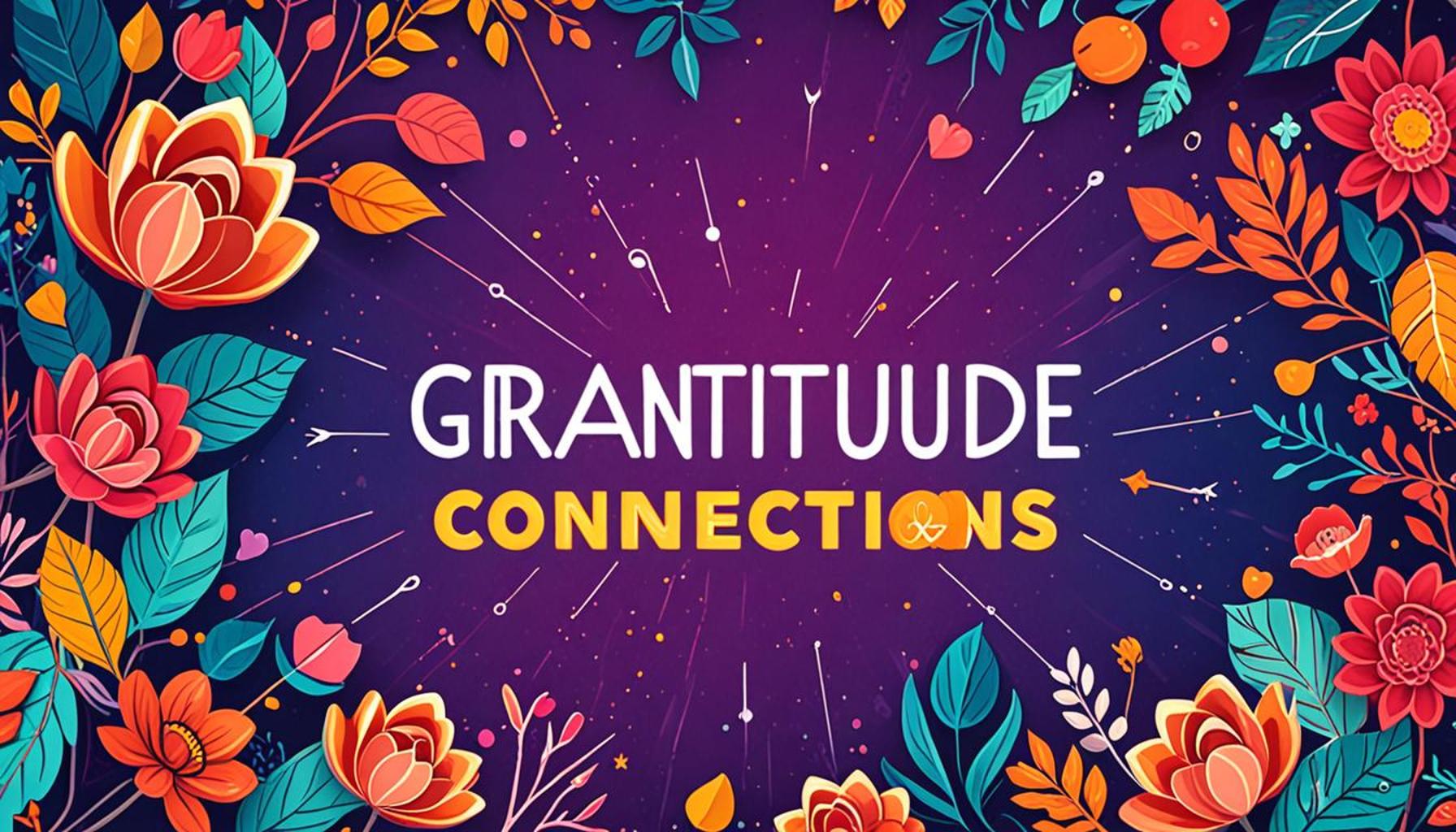How Practicing Gratitude Can Boost Your Self-Esteem

The Transformative Effects of Gratitude
In a world filled with challenges and pressures, boosting self-esteem can feel like an uphill battle. However, practicing gratitude may offer a surprisingly simple solution. Embracing gratitude not only enhances mental well-being but also fosters a more positive self-image. Scientific studies have demonstrated that individuals who express gratitude regularly exhibit lower levels of depression and enhance their overall happiness. This compelling link indicates that gratitude could be a powerful tool in the quest for higher self-worth.
Consider these compelling reasons to explore gratitude:
- Strengthens Relationships: Expressing appreciation can deepen connections with friends, family, and colleagues. In the Nigerian context, saying “thank you” after receiving help or kindness not only reinforces that bond but also cultivates a culture of mutual respect and warmth. Personal anecdotes shared in local communities often reflect how simple expressions of gratitude can transform interpersonal dynamics, making them more supportive and understanding.
- Enhances Positive Thinking: Regularly acknowledging the good in your life shifts focus from negativity to a more optimistic perspective. This is particularly important in a fast-paced society like Nigeria, where challenges are prevalent. Engaging in simple practices like daily affirmation can rewire negative thought patterns. By focusing on positive experiences, individuals might find themselves more resilient when facing daily challenges.
- Promotes Resilience: Cultivating gratitude can help you navigate life’s challenges with a boost in confidence and hope. Research highlights that people who practice gratitude show lower levels of stress and anxiety. In a nation where economic pressures and social issues often weigh heavily, gratitude can serve as a protective factor, fostering psychological resilience against adversity.
Research indicates that people who practice gratitude consistently report higher levels of happiness and self-worth. Simple actions, such as keeping a gratitude journal or reflecting on positive experiences, can transform your mindset over time. By jotting down three things you are grateful for at the end of each day, you establish a habit that reinforces the positive aspects of your life.
As you delve into the benefits of gratitude, you might even discover that this practice is not just about personal gain. In Nigeria, where community and culture are paramount, sharing gratitude can uplift your surroundings. For instance, community gatherings often include expressions of thanks to elders and leaders, reinforcing social coherence and fostering a spirit of appreciation among participants. Such cultural richness highlights how communal gratitude can create an atmosphere of positivity and support.
Join us as we explore the profound impact of gratitude on boosted self-esteem, revealing practical tips and insights to integrate this powerful habit into your daily life. By weaving gratitude into the fabric of your everyday interactions, you may not only enhance your well-being but also contribute to a more appreciative and connected society.

CHECK OUT: Click here to explore more
Understanding the Link Between Gratitude and Self-Esteem
Gratitude is more than just a fleeting emotion; it is a powerful mindset that can significantly impact your self-esteem. When you take the time to recognize and appreciate the positive aspects of your life, you naturally foster a sense of self-worth and validation. This connection between gratitude and self-esteem is supported by various psychological studies, which reveal a compelling narrative: as people nurture gratitude, their perception of themselves improves along with their overall mental health.
One primary reason gratitude boosts self-esteem is that it shifts your focus away from self-criticism and comparison with others. In a fast-evolving society like Nigeria, where societal standards often pressure individuals to meet certain expectations, practicing gratitude allows for a more compassionate perspective toward oneself. Rather than dwelling on perceived failures or shortcomings, individuals can concentrate on their accomplishments and the resources they possess.
To better understand this transformative process, consider the following fundamental principles:
- Encourages Self-Reflection: Taking time to express gratitude often leads to moments of introspection. When individuals reflect on what they are thankful for, they also begin to appreciate their unique attributes and qualities. This deeper understanding of oneself can bolster confidence, making it easier to face challenges.
- Reduces Social Comparison: In our digital age where social media depicts carefully curated lives, the tendency to compare ourselves to others becomes more pronounced. Practicing gratitude helps combat this harmful habit. By acknowledging the good in your own life, you cultivate a more satisfied self-image, less affected by what others may have.
- Promotes Acceptance: Embracing gratitude invites acceptance of both strengths and weaknesses. By recognizing that everyone has flaws and experiences challenges, individuals can develop a healthier self-concept. This acceptance fosters resilience, as it allows people to focus on personal growth instead of fixating on inadequacies.
Another noteworthy aspect of gratitude is its potential to influence your relationships positively. When you express appreciation to those around you, it not only strengthens these connections but also reflects back on your self-image. Your social environment becomes a source of support, encouraging you to nurture a more robust sense of self-worth. In Nigeria, where communal living is cherished, expressions of gratitude towards family and friends help weave a fabric of mutual respect and understanding.
Incorporating gratitude into daily life can be as simple as acknowledging acts of kindness or noting the beauty in the world around you. Over time, these small shifts can lead to remarkable changes in both personal outlook and self-esteem. As you immerse yourself in the practice of gratitude, you might become more attuned to the aspects of your life that inspire pride and appreciation, enhancing your overall well-being.
As we venture further into this exploration, it becomes evident that gratitude is not merely an abstract concept but rather a practical tool that can transform how you view yourself and the world. Embracing gratitude can be the first step toward unlocking a more confident and empowered self.
| Advantage | Description |
|---|---|
| Enhanced Positive Thinking | Practicing gratitude shifts your mindset towards positive thinking, allowing you to appreciate life’s small joys. |
| Improved Mental Health | Regular gratitude practice can lead to lower levels of depression and anxiety, fostering a sense of well-being and self-worth. |
The impact of gratitude on self-esteem is profound and transformative. One significant advantage is the ability it has to foster enhanced positive thinking. When you regularly acknowledge and appreciate what you have, you create space for positivity. This shift is not merely psychological; studies reveal it can lead to increased resilience against negative emotions. Moreover, self-esteem is intricately linked with improved mental health. As you cultivate gratitude, you effectively decrease symptoms of anxiety and depression, allowing your self-worth to flourish. Numerous psychological studies highlight the correlation between individuals who practice gratitude and their overall mental health improvement. By embracing gratitude, you pave the way for a happier, healthier self-image, encouraging you to further appreciate your unique qualities. Embrace these practices to start witnessing the profound changes gratitude can introduce into your daily life.
CHECK OUT: Click here to explore more
Practical Strategies for Cultivating Gratitude
Having established the significant connection between gratitude and self-esteem, it’s important to explore practical strategies for incorporating gratitude into your daily life. As a result, these practices can lead to not only higher self-worth but also a deeper appreciation for the world around you.
One effective way to cultivate gratitude is through written expression. Keeping a gratitude journal allows you to document the people, experiences, and moments that bring you joy. Set aside a few minutes each day to reflect on at least three things you are grateful for. This daily practice not only reinforces positive thinking but also creates a record of good moments that you can revisit during challenging times. In the Nigerian context, you might write about your family, your heritage, or a meaningful encounter in your community that enriches your daily life.
Another strategy to boost gratitude involves verbal acknowledgment. Make it a point to express your appreciation directly to others. Whether it is thanking a colleague for their support or acknowledging a friend for their kindness, such gestures build a sense of connectedness and foster stronger relationships. In Nigerian culture, where communal support is vital, shared expressions of gratitude can strengthen bonds within families and communities, reinforcing a collective sense of self-esteem.
Additionally, adopting a mindfulness practice can significantly enhance your gratitude experience. Mindfulness involves being present in the moment and acknowledging your feelings without judgment. By practicing mindfulness, you can better appreciate life’s small pleasures, making gratitude a natural response. For example, enjoying the taste of your favorite Nigerian dish or relishing the vibrancy of a local market can shift your focus onto the present, enhancing your overall sense of fulfillment.
Engaging in acts of kindness is another way to cultivate gratitude and, in turn, elevate your self-esteem. Volunteering for a local charity, helping a neighbor, or simply being there for a friend can create a powerful cycle of positivity. When you contribute to the well-being of others, you develop a deeper appreciation for your own abilities and resources. The act of giving reinforces the notion that you are enough and that your contributions matter.
Research in positive psychology also highlights the impact of grateful visualization. This technique involves imagining yourself in scenarios that invoke feelings of gratitude. Close your eyes and take a moment to visualize the best aspects of your life: loving relationships, personal achievements, or even the beauty of your surroundings. Such exercises can evoke strong emotions, further reinforcing your self-esteem and appreciation for life’s blessings.
Lastly, incorporating gratitude into social gatherings can create enriching experiences for everyone involved. Consider starting a tradition where friends and family share what they are thankful for during festive occasions or gatherings. This not only fosters a culture of appreciation but also strengthens the social fabric and brings families closer together—an essential aspect of Nigerian culture.
By integrating these strategies into your life, you will find that practicing gratitude becomes a natural habit, ultimately leading to enhanced self-esteem. The more you engage with gratitude, the more you can reshape your perspective, bolster your self-worth, and cultivate a life filled with positivity and appreciation.
CHECK OUT: Click here to explore more
Conclusion
In exploring the powerful connection between gratitude and self-esteem, it is evident that nudging our mindset toward appreciation can yield profound benefits. Embracing gratitude can significantly bolster your self-worth, leading to a healthier, more fulfilling existence. By consciously acknowledging the positives in your life, from family support to personal achievements and the vibrant culture surrounding you in Nigeria, you actively participate in reshaping your self-view.
The practical strategies discussed, such as maintaining a gratitude journal, expressing appreciation openly, and engaging in acts of kindness, serve as effective tools for embedding gratitude into your everyday practice. Additionally, mindfulness and grateful visualization enrich your experiences, enabling you to savor life’s fleeting moments. These techniques do not merely enhance your outlook; they forge deeper connections with those around you, reinforcing communal ties and uplifting collective self-esteem.
Ultimately, gratitude is more than just a fleeting emotion; it is an enduring practice that can transform how you perceive yourself and interact with the world. As you venture into the realm of gratitude, remember that each expression of thanks echoes back positivity into your life. This ripple effect not only elevates your self-esteem but also fosters a culture of appreciation and kindness in your community. In a society enriched with shared values, practicing gratitude can lead to a more connected, supportive, and vibrant way of living, enhancing not just individual self-worth, but also the broader social fabric.


